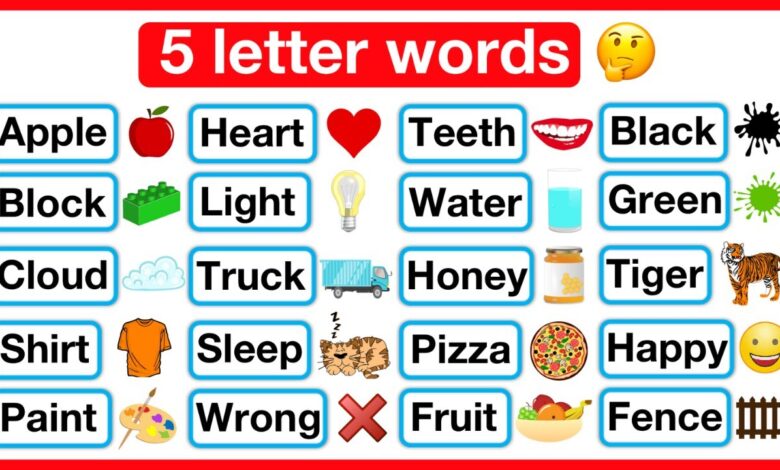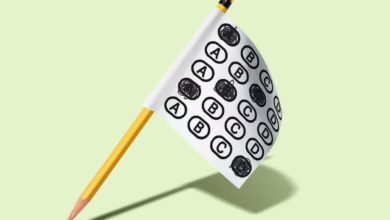5-Letter Words With Three Vowels That Every English Learner Should Know

Building vocabulary becomes easier when you focus on sound-rich words. Learning 5 letter words with 3 vowels helps learners understand English sound flow, spot patterns, and remember spellings faster. These words also appear often in everyday speech, reading, and popular word games like Wordle and Scrabble.
The presence of three vowels in a short word makes pronunciation smooth and recognition instant. Whether you’re preparing for exams, improving fluency, or just expanding your vocabulary, these examples will strengthen your grasp of English.
Below is a carefully organized list of useful five-letter words with three vowels, each followed by a simple, real-world explanation.
- Alien – Describes something foreign or from another world. Learners use it to talk about differences in culture, science fiction, or anything unusual and unfamiliar in a positive sense.
- Alone – Means by yourself or without company. It’s helpful for expressing personal moments, peace, and independence, improving emotional vocabulary and descriptive writing.
- Ideal – Refers to something perfect or best possible. It enhances conversations about goals, standards, or quality and strengthens understanding of positive adjectives in practical use.
- Media – Refers to communication platforms like television, radio, and the internet. Learners can use it when discussing information sharing, news, or digital communication vocabulary.
- Ocean – Describes the vast body of salt water covering Earth. It enriches descriptive and environmental vocabulary and introduces learners to geography-related English words.
- Naive – Means innocent or inexperienced. It’s a helpful word when describing simple behavior or straightforward thinking, especially in character-based or emotional conversations.
- Radio – A device that transmits or receives sound. It helps learners connect technology vocabulary with everyday use and understand how communication tools work in real life.
- Arena – Refers to a large space used for sports, shows, or events. Learners can relate it to social activities and vocabulary about entertainment or community gatherings.
- Opera – A musical performance with dramatic singing and orchestration. This word adds elegance to vocabulary lists about culture, theatre, and classical arts.
- Abode – Means a home or residence. It’s a simple yet rich word for writing or speaking about places people live, offering variety beyond the word “house.”
- Arose – Past form of “arise,” meaning got up or emerged. Learners can use it to describe beginnings, actions, or natural events in past-tense storytelling.
- Quiet – Means stillness or absence of sound. It’s useful in polite conversation, helping students learn how to describe silence, calm, or peaceful settings.
- Quite – Means fairly or completely depending on context. Learners practice it to express degree or emphasis, improving accuracy in both spoken and written English.
- Guide – Means to lead or show the way. It helps describe instruction, direction, or advice and appears often in travel, teaching, and professional settings.
- Piano – A keyboard musical instrument producing soft and pleasant sounds. It expands vocabulary related to music, hobbies, and art, supporting creative language learning.
- Video – Refers to moving images with sound, often for learning or entertainment. Learners meet this term frequently in technology, education, and communication topics.
- Email – Short for electronic mail used for online communication. It’s an essential digital word for modern English learners, perfect for professional and everyday use.
- Audio – Relates to sound, voice, or recording. It’s a helpful term in multimedia learning, allowing learners to describe hearing materials, devices, or digital content easily.
- Issue – Means a problem, topic, or publication number. Learners often use it in school discussions, writing, and debates to introduce or explain an idea clearly.
- Movie – Refers to a motion picture or film. It’s common in entertainment vocabulary, helping learners express opinions about films, actors, or favorite activities.
How to Practice These Words Effectively
Pick three words daily and use them in short sentences. Say them aloud to notice vowel sounds and rhythm. Write a quick example in a journal or use them in light quizzes and games. Repetition and usage make these words part of your natural vocabulary.
Learning vowel-rich words builds both speaking clarity and memory power. With steady practice, you’ll notice your vocabulary improving and your English feeling more fluent and confident every week.




